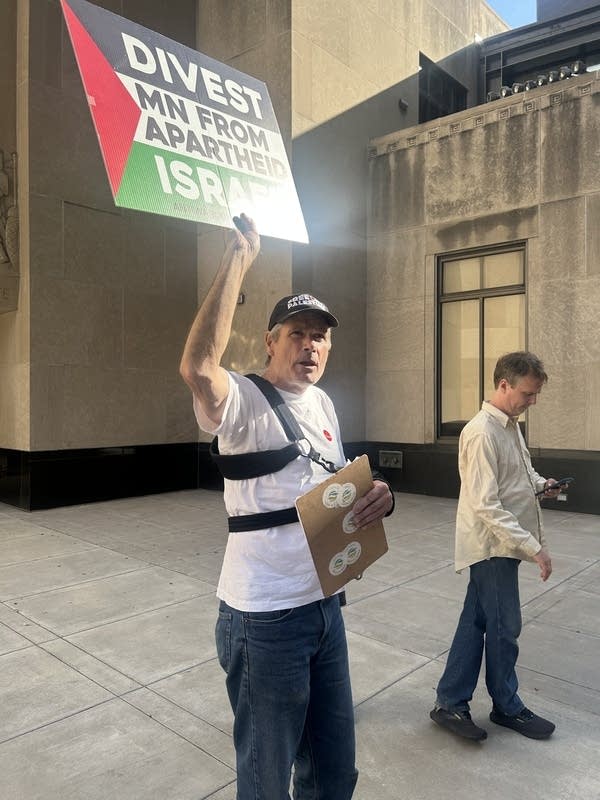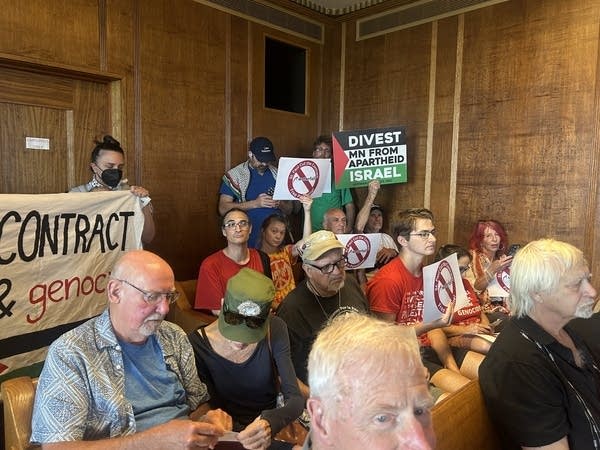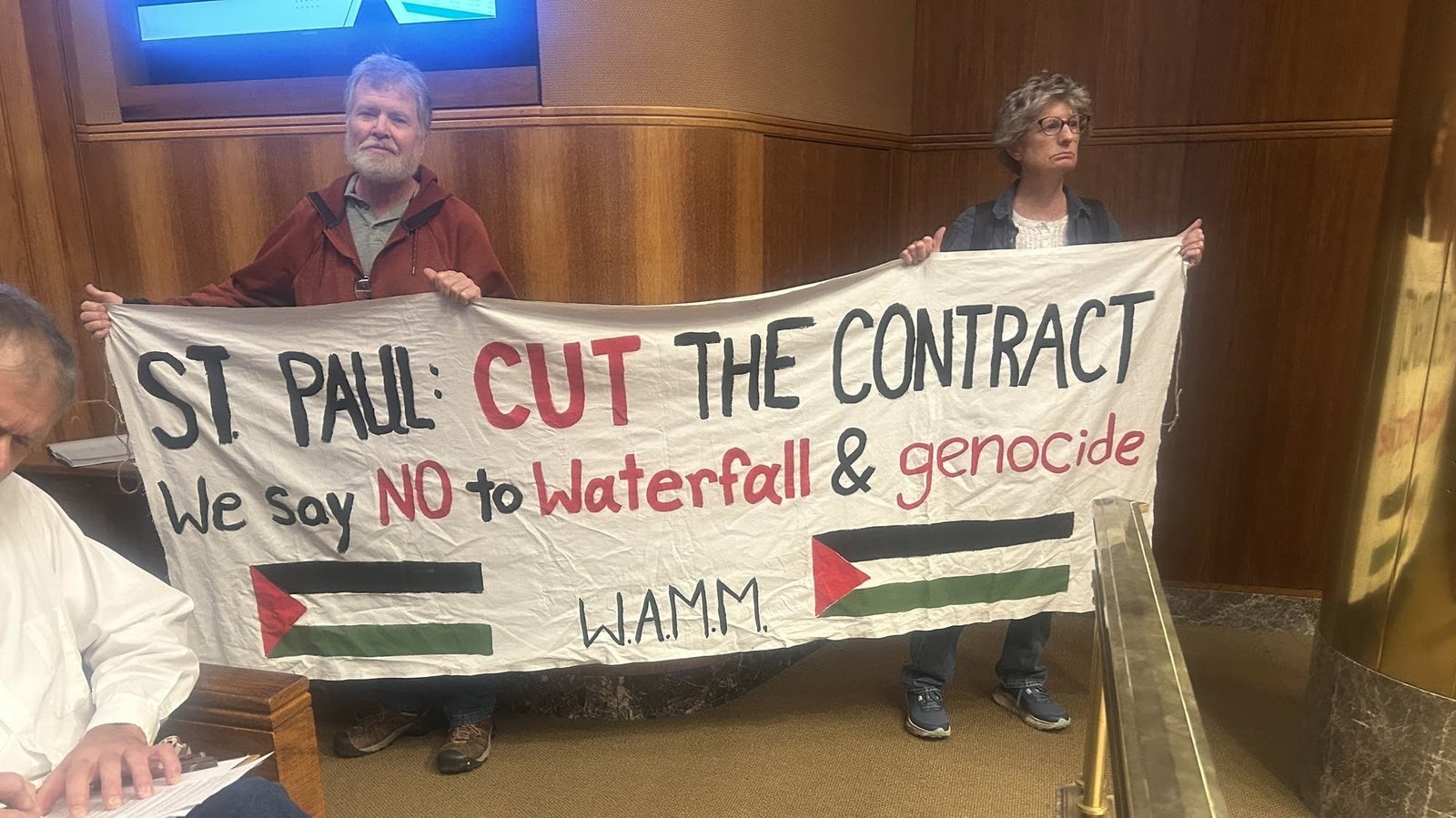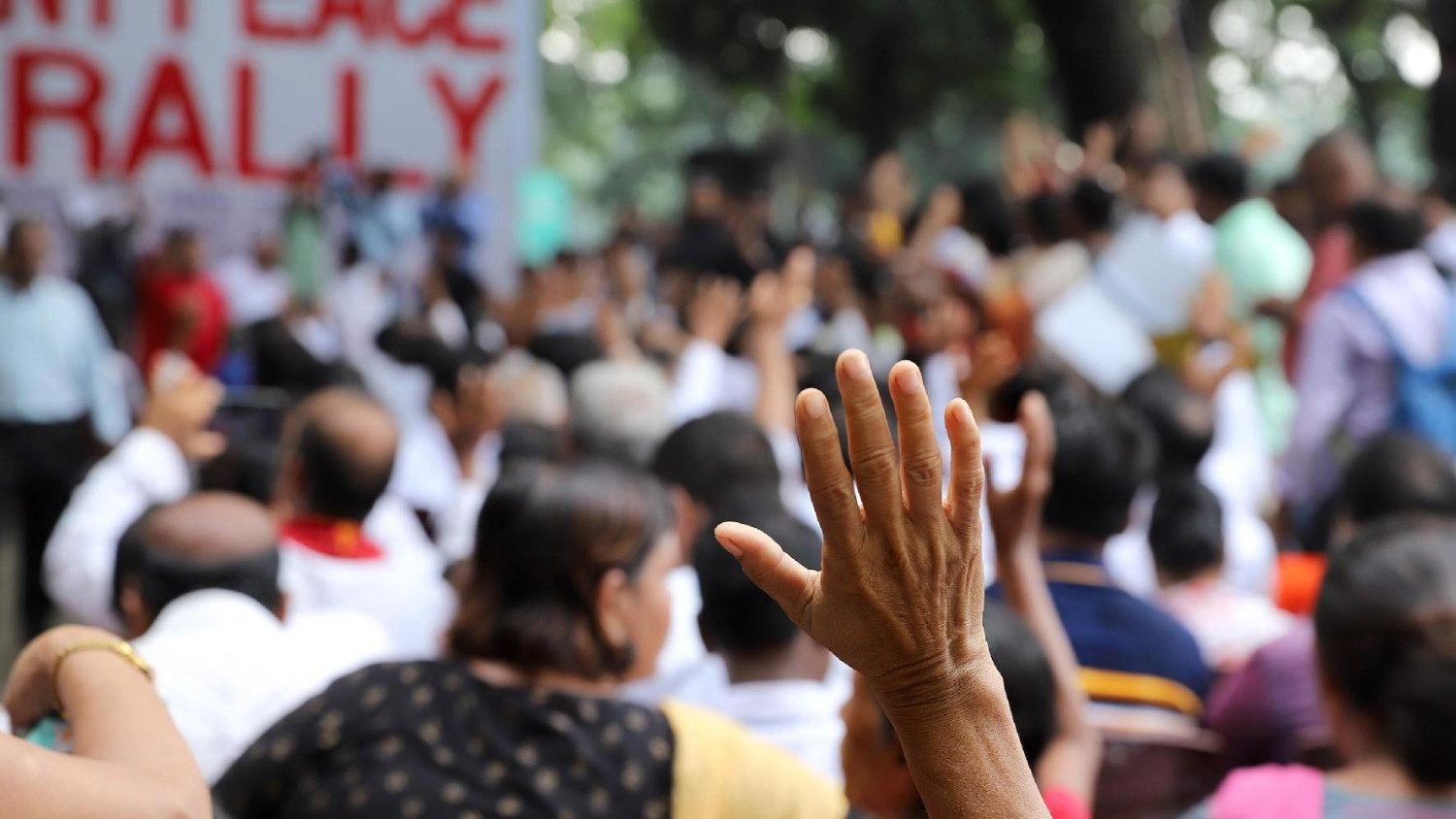A relatively unknown board overseeing St. Paul’s water services has gotten a lot more attention recently, as it's come under scrutiny from pro-Palestinian protesters. The activists want the board to cut ties with an Israeli cybersecurity company.
Waterfall Security Solutions has provided cybersecurity services for St. Paul Regional Water Services since October 2024. The firm has provided services to companies around the world for nearly two decades.
The Committee to Cut the Waterfall Contract — made up of members from groups such as Veterans for Peace, Women Against Military Madness and the Anti-War Committee — was formed when they learned of the contract’s existence in May.
In August, an activist named Nathan Phillips disrupted a meeting of St. Paul’s Board of Water Commissioners, the governing entity that oversees St. Paul’s water services.
“I am Jewish and I stand with the Palestinian people,” Phillips said as a board member continued with business. “There is no time to be reasonable, Gazans are being starved and massacred and we stand here being reasonable. … I know you care about this in your heart. You’ve seen them dying.”

Phillips was joined by about 35 fellow protestors at the August meeting, the second of two meetings that had been disrupted by the group.
“Say no to waterfall, say yes to humanity. Say no to waterfall. Say no to genocide,” the group chanted.
Council member Cheniqua Johnson who serves as vice chair of the board adjourned the meeting shortly thereafter.
Racquel Vaske, the general manager of the water agency, said the activists have contacted the utility several times.
“They have been sending emails, letters, voicemails, hundreds of them, to our team over the last few months,” Vaske said. “They have asked the board to end the Waterfall contract.”
Vaske says the Pro-Palestinian activists began to show up to meetings in July when they briefly interrupted the board meeting before leaving peacefully.
“We obviously sympathize with what they’re trying to do. I think in the world we’re living in, there are so many heartbreaking things going on,” Vaske said. “I feel that they are trying to make a difference.”
Protestors cite Israel’s war in Gaza, which committee member Cedar Larson called a genocide at this month's meeting.
“There should be no business as usual under a genocide. So don’t be complicit. Don’t be indifferent, and please, history will look back on this time and judge us for our inaction,” Larson said.
Local activism
The protest at the Board of Water Commissioners is the latest example of how Israel has made its way into local politics.
Minneapolis, St. Paul and other cities in Minnesota have passed resolutions calling for a ceasefire in Gaza.
And the Free Palestine Coalition is calling on Mayor Jacob Frey to end a Minneapolis contract with an Israeli tech firm.
The coalition said Zencity is a developer of surveillance technology that has been used nationwide and in Minnesota to monitor social media.
The mayor's office did not respond to a request for comment.
Vaske said the water agency already has a contract and has made the investment in Waterfall. The city paid the company $100,000 to install the cybersecurity device that protects the agency’s data transfers — which protected them in the city's recent cyberattack.
Waterfall, she added, was the best option at the time.
“Every bit of research we have done shows that Waterfall is the best product on the market that meets our specific tech needs,” Vaske said. "Waterfall is the one and only contract that we’re aware of for a provider who provides exactly what we need.”
Having said that, the agency is willing to work with the protesters. The board voted to consider alternative options for the cybersecurity contract. The agency will issue a request for information, or RFI, to identify and consider alternative companies that meet its requirement, Vaske said.

The board wants “to see what the alternatives would be and what they would cost, so that we can make sure that we have all of our options in front of us,” Vaske said.
“I don’t have the budget to just fully replace Waterfall, but I want to make sure I have all the information in front of us as we continue to try and hear these concerns from customers and make the best decision for our utility.”
Mike Madden is one of the more active members of the Committee to Cut the Waterfall Contract. He said he thinks that’s a fair compromise. But he wants to know if legally, the board can take other considerations into account when deciding on a vendor.
“Can the commissioners consider the economic isolation of Israel in their selection of vendors, or does it have to be based purely on the quality of the product and the price of the product and those kind of technical things? We have to get to the bottom of that,” Madden said.
Utility staff are expected to initiate the RFI in October. Its findings will be reported to the board in January.




